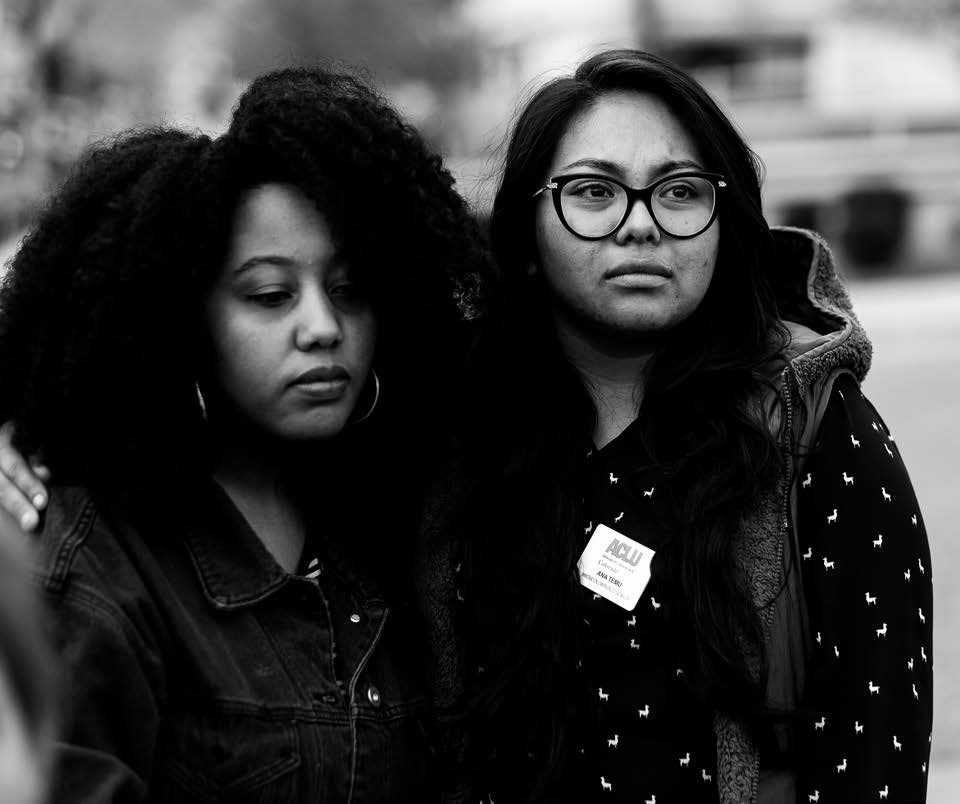KAMYAR SAMIMI died in the custody of U.S. Immigration and Customs Enforcement on December 2, 2017, 15 days after ICE agents arrested him. Mr. Samimi held a green card and had lived in the U.S. for more than four decades. Within days of his death, ACLU of Colorado sent ICE a request under the Freedom of Information Act for records related to his arrest, detention, and subsequent death.
It took 17 months and a federal lawsuit for ICE to produce its report about Mr. Samimi’s death. The report confirmed our worst fears about why ICE kept the public in the dark about this tragedy for so long. It paints a gruesome picture of the conditions inside the Aurora detention facility operated by GEO Group, Inc., a for-profit prison corporation; and a gruesome picture of how our government treats immigrant detainees.
Medical staff at GEO were ignorant about how to treat Mr. Samimi’s opioid addiction and apathetic about his overall care. The physician’s decision to cut Mr. Samimi off methadone was medically unjustifiable. To make matters worse, nurses failed to provide him with the correct doses of medication designed to treat the subsequent brutal withdrawal symptoms and to monitor his condition appropriately. They ignored his desperate pleas for medical attention because they thought he was faking it. Mr. Samimi became suicidal. As his deteriorating condition drew him closer to death, the nurses didn’t follow suicide-watch protocols or contact the physician, who apparently ignored calls when he wasn’t at the facility.
Mr. Samimi’s tragic death reflects deeper issues within immigration detention. He is one of 24 people to die in ICE custody since Trump took office, a number that does not include the seven children who have died in the custody of U.S. Customs and Border Protection since December. In Colorado, we hear constant stories of woeful medical care for the detainees at GEO, the vast majority of whom are refugees who lack legal representation.
[video width="1280" height="720" mp4="/sites/default/files/wp-content/uploads/2019/07/65453304_2272904826281717_3772953944806007624_n.mp4"][/video]
Video: Protesters outside GEO Aurora Detention Facility.
Ultimately, Mr. Samimi didn’t take his own life. It was snuffed out by a broken system. After vomiting blood and collapsing, Mr. Samimi stopped breathing. He was finally taken to a hospital and pronounced dead. Later, the coroner’s autopsy would cite emphysema and gastrointestinal bleeding as contributing factors in his death. The forensic pathologist wrote that methadone withdrawal could not be ruled out as the cause of death.
In response to the gross mistreatment of human beings in its care, ICE rewarded GEO with 500 additional beds in February 2019. There is no indication of any effort to address the medical understaffing noted in the report on Mr. Samimi. At the time of Mr. Samimi’s death there were around 800 people at GEO and one physician on staff who never examined Mr. Samimi. Today, one physician is responsible for 1,365 lives.
At the same time GEO was undergoing major expansion, there were multiple outbreaks of mumps and chickenpox. As of May 2019, 152 detainees were under quarantine. Congressman Jason Crow, in whose district GEO is located, recently said of ICE, “The agency’s lack of transparency and accountability put the health of the public and detainees at risk. We’re seeing similar situations occur across the country fueled by ICE’s culture of secrecy. . . People are dying and we can’t wait a moment longer.”
Unfortunately, the Trump administration isn’t fueled by the same sense of urgency, but rather deliberate cruelty. It seems determined to keep locking immigrants in cages and to stuff the coffers of private prison corporations, which are unable or unwilling to provide adequate medical care. While this administration isn’t interested in holding ICE and GEO accountable, we are. Our work on behalf of detainees whose lives are at stake continues. “People are dying and we can't wait a moment longer.”
—Arash Jahanian, Staff Attorney
SEPTEMBER 2018 was a time of celebration and new beginnings for my family. We had just baptized my nephew, my niece turned 2 years old, and I got engaged. Life was good. Until one day, at a stop light on Colorado Boulevard, my joy was replaced with dread by a phone call that would change everything. In a low, crackly voice my sister-in-law said, “They got him. ICE got him.”
This was the call I’d been dreading for months. My mind raced in so many different directions, from, “I have to call a lawyer,” to, “I have to gather up bail money.” Who else could help? Should I start a petition? But mostly I just thought, “How do I get him out? How do I get my brother back?”
While my mind raced, my body stopped moving — even breathing. A honk from the car behind me brought me back to the present moment, to a stop light on a warm, sunny Colorado day. Except now there was no music, there was no joy, and the peace and happiness my family felt for a short time came to a screeching halt. I could barely see the road in front of me because of the tears in my eyes. All I could feel was pain for what seemed like an eternity.
The following week was a blur of lawyer meetings, family meetings at McDonalds with a play place so my niece wouldn’t hear our conversations and visitations at the Aurora GEO Detention facility. Time seemed to stand still and nothing happened fast enough until a week later when I received another life-altering call. This time from a Mexican phone number.
“Hola hermana,” is all I heard from my brother, now a heartbroken man. That moment wasn’t the ending to our family separation, but rather the beginning of our fight for reunification.
—Ana Temu, Immigration Campaign Coordinator
This story was originally featured in our Summer 2019 Newsletter.
Date
Wednesday, July 17, 2019 - 12:17pmFeatured image
